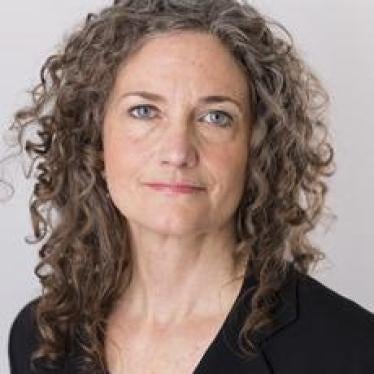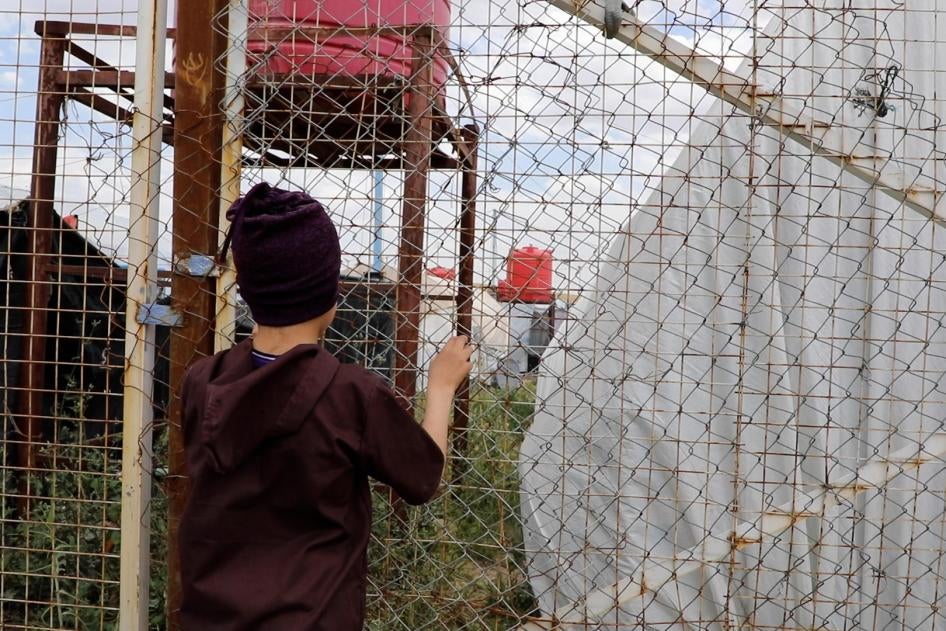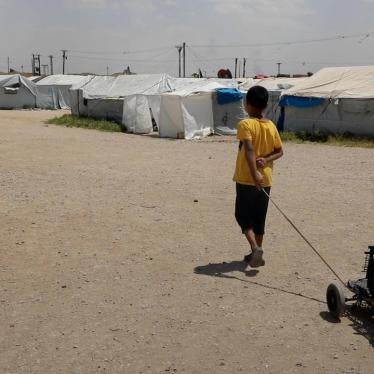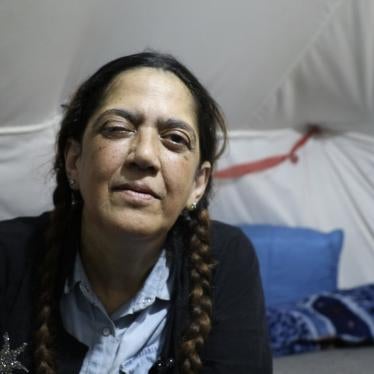As the new year approaches, families of Canadians unlawfully detained in dire conditions in northeast Syria are anxiously awaiting January 6. That’s when a court in Canada will resume hearings on whether the government has violated the Canadian Charter of Rights and Freedoms by not repatriating their loved ones from the war-wracked region.
Canadian authorities should end this uncertainty by promising to promptly help bring home all Canadians detained in northeast Syria since at least 2019 by a Kurdish-led force. At least 43 Canadians remain in squalid camps and prisons for thousands of Islamic State (ISIS) suspects and family members, the Canadian repatriations group Families Against Violent Extremism (FAVE) told me. But none have been charged with a crime. Thirty are children including 10 born to foreign mothers, FAVE said.
The court action was filed by families of 26 detained Canadians under the name “BOLOH,” for “Bring Our Loved Ones Home.” Since the hearings began, Global Affairs Canada, the government’s foreign office, has notified at least 35 detained Canadians – seven women and 28 children including most BOLOH applicants – that they met criteria for possible repatriation, in part because of “deteriorating conditions” in the camps where they are detained, FAVE and families told me. But Canada has not committed to bringing them back.
Of equal concern, Global Affairs has not said it will even consider repatriating the other Canadians including six men, four of whom are applicants in the court case. Yet conditions in prisons where the men are detained are even worse than in the life-threatening camps holding women and children, informed sources have told me including in December, with hundreds suffering from tuberculosis, malnutrition, and festering wounds.
In January 2022, ISIS attacked a prison holding foreigners, sparking clashes that left hundreds dead. A BOLOH applicant, one of three Canadian men detained there then, called me during the battle and described dead and wounded everywhere.
“I’ve seen with my own eyes about 80 to 100 killed,” the man said. “One kid, as we were trying to stop his bleeding, he died in front of me. His leg was busted open and hanging by the flesh. We tried to stop the bleeding with a shirt. He looked very young. There is no medicine, there is no blood for what is happening here. Today will be the sixth day with no food or water.”
The Canadian man also alleged to me that guards had subjected him and other detainees, including children, to “psychological torture, physical torture.”
In November, a Turkish warplane nearly hit another prison in northeast Syria, where two Canadian applicants in the court case were last known to be held. One was Jack Letts, who has also alleged he was tortured. The other Canadian was in such poor health that he needed help to walk or stand when his sister visited him in prison in 2021, the sister told me. “It’s now four years that I’ve been asking you to clarify the state of my brother’s physical and mental health,” the sister wrote Global Affairs in November.
In addition, Global Affairs has notified three foreign mothers that eight of their nine children may be eligible to come to Canada but that they are not, FAVE said. The fourth foreign mother, who has one child, has not received any notification. Repatriating children without their mothers would flout the international right of the child to family unity, absent compelling evidence that separation is in the best interest of the child.
When I visited northeast Syria in May, Abdulkarim Omar, an official with the governing Autonomous Administration of Northeast Syria, told me regional authorities want countries to repatriate their nationals, a call they still make. But Canada has only allowed back four children and three women in nearly four years, lagging far behind allies such as Australia, Germany, and France, which have repatriated scores of their nationals. During our meeting, Omar also urged the international community to create a court in northeast Syria to prosecute detainees implicated in crimes. But as recently as December, foreign government officials told me they saw no international support for trials in northeast Syria.
Canada, however, has a robust law enforcement and judicial system to monitor and prosecute adults if warranted. The government also has the capacity to help Canadians rebuild their shattered lives, including those trafficked into ISIS and children forced to live under the group. In the new year, the government should ensure all Canadians unlawfully detained in northeast Syria can come home, leaving no one in these life-threatening conditions.










